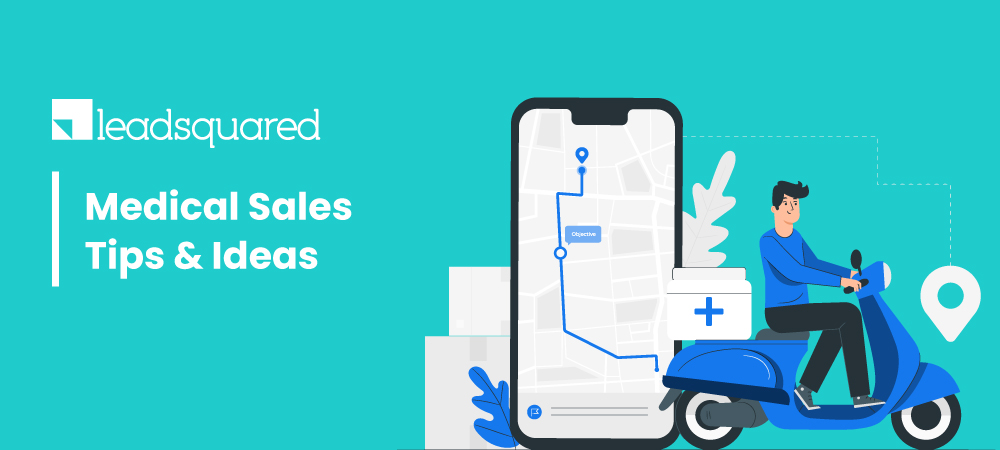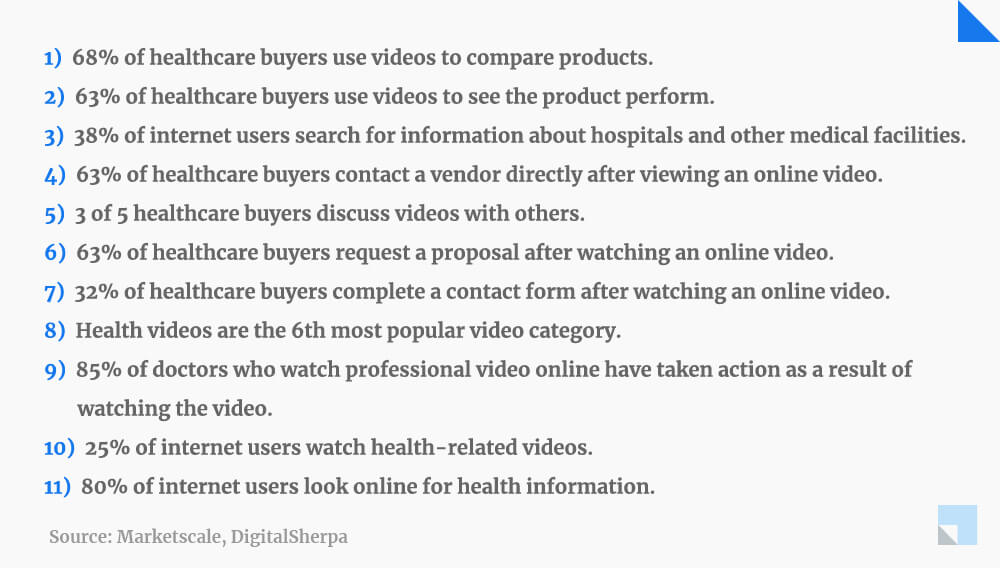
Medical device sales is a versatile line, and you need to be proactive to close the deals. The medical device sales strategies have gone through massive changes, even though the basic principles remain the same.
The 7 Medical Device Sales Strategy You Need to Know to Get More Conversions
1. Build a Strong Network
Medical sales is largely dependent on building a strong network of potential buyers. You should attend all conferences and seminars in the medical device sales field and speak to the participants and audiences. Try to chat up with important decision-makers who might influence a deal.
You can also hook on to social media, especially LinkedIn, to grow your professional network. The platform even makes it easy to track the key decision-makers in a company you need to approach.
Reconnect and engage with your existing network to build long-term relationships. Marketing your healthcare product to your network can be more effective in increasing sales than approaching strangers.
2. Never Miss on Follow-Ups
Landing an appointment with your desired contact is a tough job. So, when you succeed in doing that, make all efforts to make the deal happen.
Statistics show that 80% of deals need at least 5 follow-up calls after the first meeting. However, 44% of medical representatives quit after a single follow-up.
Staying in touch with your prospect and influencing him subtly are subtle medical device sales tactics for deal closure. Engage your prospects with the right materials, resources, and presentations to make your products stand out.
Push through the deal and capitalize on follow-ups for more sales.
3. Make the Most of Email Marketing
Emails are 40-times more effective in bringing in new customers compared to Twitter or Facebook. In medical sales, emails take special importance as prospective clients are always busy. Doctors, surgeons, clinics, and hospitals deal with patients all day and have almost no time to attend to sales reps.
In such a scenario, emails can save the day and help you connect with your potential client. Your prospects can read the email in their free time, take time to consider the matter, and get back to you when it’s convenient.
Don’t forget to personalize the emails for the most impact. You can also use an online email automation tool or a CRM like LeadSquared to save time, increase efficiency, and convert more leads.
Pro tip: Combine your email marketing with social media marketing. Create official company pages, share posts, engage in related groups, and improve communication with prospects for more leads and conversions.
4. Adopt the Storytelling Method
Only 5% of people remember the statistics after a presentation. However, 63% of people retain the stories told. What does this tell you?
Sales reps who adopt a storytelling approach to selling get more success than their peers. Statistics are obviously important, but you need to weave them with benefits.
For instance, medical sales representatives can tell a doctor, “Our machine can increase efficiency by 20% and improve clinical outcomes by 15%.” But as we saw, the statistics may not be remembered by your prospect.
A better approach would be through storytelling. The same sentence could become something like-” Our machines increase efficiency by 20% and help you save overheads and operational costs. It also helps your patients reduce symptoms and pain by 15%.”
Which one of the above two statements you think is more memorable?
5. Don’t Be Shy to Ask for Referrals
You might be surprised to know that 91% of customers are ready to give referrals. What’s more surprising is, only 11% of medical sales representatives ask for them!
Now that you know the secret, go ahead and ask every client to give some referrals. You can even ask for referrals from clients that didn’t convert. Even if they didn’t find your product useful, they might know someone who may!
It pays to be direct when you ask for referrals. The worst you can face is a single, “no.” So there’s no harm in being direct.
6. Be Ready for Complex Conversations
Medical device sales is a complex field. You should always be ready for difficult conversations, and do your homework to prove your knowledge.
Knowing your product is essential, but not the only requirement. You also need to know and understand your buyer.
Take the time to study your target hospital or clinic to discover unique pain points. This will give you the insights to align your product or service with that of your prospect. Some of the important things to look out for include-
- Volume of diagnoses
- Amount of procedures
- Quality measure performance
- Outcome of treatments
Your sales reps should also be on top of the latest market developments and trends. Healthcare is an evolving field, and you need to keep yourself updated all the time.
7. Empower Your Medical Sales Representatives with Resources
Medical sales representatives nowadays use mobiles and tablets to pith their products to doctors or physicians. Adopting this medical sales tip makes a big difference, and helps convince your prospects better.
In this regard, videos are proving to be too effective. Consider the following-

Using videos to generate awareness and highlight the benefits of your product can work wonderfully to increase sales. Videos also form a better understanding and help medical sales representatives explain complicated topics more easily.
Consider a Reliable HIPAA Compliant CRM
CRMs help you get and convert more leads. You can track and nurture each prospect, get autosuggestions on the next steps, and never miss a follow-up.
LeadSquared is a leading CRM that enables medical businesses to boost sales and productivity. You can also speed up your sales cycles and earn more revenues and profit. It also has a mobile CRM to track the location of agents, check what medical representatives are doing, geo-fencing, and automated day plans.








![[Webinar] E-KYC: Creating a Customer-Compliant Onboarding Experience 4 E-KYC: Creating a Customer-Compliant Onboarding Experience](https://www.leadsquared.com/wp-content/uploads/2021/11/MicrosoftTeams-image-25-80x80.png)